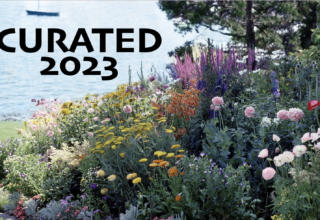
Clearly, the Harvard University definition aligns decision science with all things quantitative. Our concern with Thinking Whole and Creating the Future You Deserve certainly needs to build on that framework. At the same time, we feel that what you need to work with to create what is yet to be created needs a grander canvas and a more encompassing mandate. The future is not a mere projection of what has been, so much as it is a manifestation of intention. A future that is a linear projection of the past is a future that is being neglected.
There really is no such thing as a future that is a linear projection of the past; mainly because there is always someone who can influence that projection. That can happen on a global level, at a national level, at the organizational level, and at the personal level. To manifest something new to the universe (or at least your personal corner of that universe), we need get beyond the province of brain. For that we need to optimize our ability to use the entire mechanisms and potentiality of the mind. That is the cornerstone of the field of Applied Decisional Sciences.
We have chosen to use (actually invent) the word “decisional” to differentiate it from the commonly used “decision” as connected with science. That is because we feel that “decision science” has come to mean that which is closer in scope to computers, algorithms, and the largely calculational. Whereas our view is that “decisional sciences” should embrace a very broad multi-disciplinary approach that includes not only hard science, but also the less empirical yet we feel equally valid approaches to thinking about thinking.
The three foundational principles of the field of Applied Decisional Sciences, as we see it, are –
- The belief that every discipline ever utilized to achieve enlightenment has something useful to bring to the table.
- The understanding that, as human thinking is intrinsically multi-disciplinary, it logically follows that only a fully integrated multi-disciplinary approach can lead to our best thinking about thinking.
- The conviction that the best theoretical understanding is that which is translatable into actionable utility.
Will you Create the Future You Deserve? If not you, then who? If not through a moment of genius, then how?
Applied Decisional Sciences: The Cast of Characters and Concepts
Highlights include –
Kahneman/Tversky 2002 Prospect Theory
Michael Lewis 2003 Moneyball
Malcolm Gladwell 2005 blink (Thin Slice Thinking)
Howard Gardner 2005 Five Minds for the Future
Nassim Taleb 2007 The Black Swan
Daniel Kahneman 2011 Thinking Fast and Slow
Nancy Andreasen 2011 The Creating Brain
Michael Lewis 2016 The Undoing Project
Ad Sci Institute 2017 Thinking Whole
Download Article
















